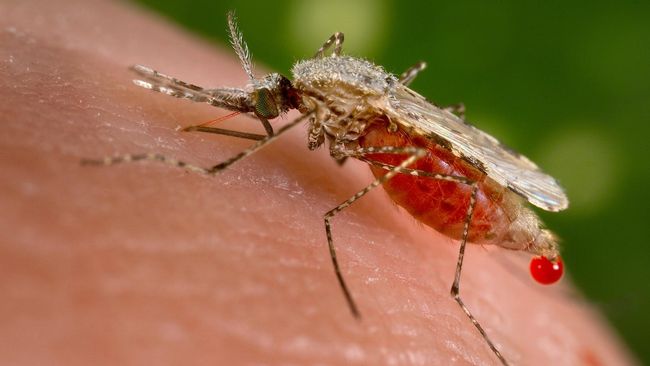Rainy season is here, mosquitoes run rampant. It is the right statement illustrating the condition when the rain arrives. Serious problems from the increasing mosquito population is the high risk of blood parasite transmission, including malaria. Malaria is an infectious disease caused by the blood protozoan parasite of genus Plasmodium.
In 2017, malaria is estimated to cause 435,000 deaths in the world. Until now malaria is still a global health problem, including eastern Indonesia which is still a malaria endemic area.
This disease is transmitted through bites of female mosquitoes that suck blood. The mosquito bite causes parasites to enter the human body. This parasite will settle in the liver before getting ready to attack red blood cells. Blood examination through a thin blood smear procedure under a microscope is still a standard malaria diagnosis which is often used, in addition to diagnosis confirmation through a rapid diagnostic kit (RDT).
This disease causes a variety of symptoms, from the very mild to severe symptom that can even cause death. Common symptoms include fever, sweating, malaise, headache, nausea, and fatigue. Clinical signs that often appear in malaria include increased respiratory rate, mild jaundice, weakness, enlarged liver and an enlarged spleen. Malaria must be treated immediately to prevent the risk of dangerous complications.
Cerebral malaria is the most severe neurological complication of Plasmodium infection. The condition is caused by damage to blood vessel walls due to the spread of parasites in blood vessels which causes the brain to lack oxygen supply. As a result of lack of oxygen supply to the brain, it causes high morbidity and mortality in cerebral malaria. In some cases, patients who survive the form of cerebral malaria will usually experience brain injuries that cause long-term neurocognitive disorders.
Although there is no effective vaccination to prevent malaria, preventive measures can still be done by avoiding mosquito bites by installing insecticide-treated mosquito nets on beds, using long-sleeved clothing and long pants, especially during morning and evening activities, and using anti mosquito creams or sprays.
Although there is no effective vaccination to prevent malaria, preventive measures can still be done by avoiding mosquito bites by installing insecticide-treated mosquito nets on beds, using long-sleeved clothing and long pants, especially during morning and evening activities, and using anti mosquito creams or sprays.
In addition to maintaining environmental cleanliness with 3A method, draining, burning, and burying can also be done to prevent the breeding of mosquitoes so the risk of transmission of blood parasites, especially malaria can be minimized. (*)
Author: Mahendra Pujiyanto





